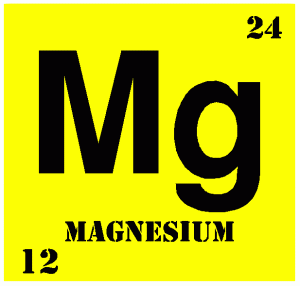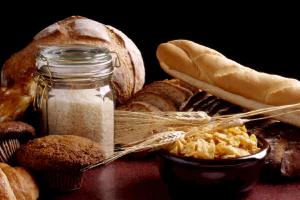Hey guys. I thought about doing a week devoted completely to osteoporosis and bone health. You have probably known someone who has been affected by this disease, and you know you need to take steps toward preventing it in your own life. But what can you do? There are some quite easy ways to tackle this issue.
This will be a three part series. Today will be your diet, tomorrow will be about drugs and vitamin D, and the final day will be focused on healthy exercises that you can do, right now, to help build your bones. Your mother was right--it's good to have strong bones.
You may not think that you will be affected by osteoporosis, a disease that results in weak and fragile bones; however, you may be surprised that there are factors in your everyday life which are influencing the rate at which your bones grow, or become weaker. How can you use natural ways to prevent this?
Your Diet and Your Bones
There is no doubt about that your diet affects many aspects of your health, including your bones. We have heard that we need to increase our calcium intakes, specifically in low-fat milk, in order to build stronger, healthier bones and teeth. This is simply not true. As you will read, there are many factors that contribute to healthy bones.
Calcium
Calcium is the most abundant mineral in your body, and is one of the important minerals that help protect your bones. However, so much emphases has been placed in this mineral that we have created deficiencies in other essential minerals and nutrients that work synergystically with calcium to support bone growth. However, it should be mentioned here, as well as the best sources that can easily be absorbed by your body.
Low-fat pasteurized dairy already has problems of its own, including the potential for the risk of heart disease. Calcium, milk's “redeeming” quality, is actually only one of the many minerals needed for bone health, and it may even be one of the least important, when you consider the other nutrients that help propel its actions to protect our bones.
Cow's milk is rich in phosphorus which binds to the calcium, preventing its absorption by the body. So, if you are drinking milk, thinking you are doing your bones and body good, then think again. However if you are drinking raw, organic, grass fed milk, then you really are doing your body a tremendous amount of good, which can actually help increase your bone strength by providing amino acids, natural protein and unadulterated lactose.
Lactose is the milk sugar that helps facilitate calcium absorption; so, since the lactase (which helps break down lactose) in raw milk has not been harmed during any heating processes, it helps people with lactose intolerance digest milk easily, but I suspect that raw milk would also help facilitate calcium absorption.
Omega-3 Fatty Acids: Brain and Bones
Raw, organic and grass fed cows have higher levels of omega-3 fats in their milk, which are incredibly healthy, anti-inflammatory fatty acids your body needs through diet. Many people who eat processed foods, or who eat out all the time, are putting their bodies in a high inflammatory state due to the massive amounts of omega-6's in their diets.
A balance of omega-3's and omega 6's, two necessary fatty acids, in the diet has been shown to be directly linked to good bone health. Many people prefer to have a 1-1 ratio of omega-3's to omega'6's, and some people prefer a 1-3 ratio.
You find most of your anti-inflammatory, bone building omega-3's in your fish (choose low-mercury options, or supplement with a good fish oil supplement, preferably Krill), walnuts, chia seeds and flax seeds). Be liberal about the amount you use in your meal plan (while still eating based on what your body needs—don't go overboard!). Most of your omega-6's are found in nuts, grains, processed foods and vegetable oils. Try to limit these fats in your diet for optimal health.
Vitamin K-2
Vitamin K2 is the best form of vitamin K that helps deposit calcium from our diet into the correct places in our bones, and helps keep calcium deposits out of tissues (which results in what is called calcification). Calcification occurs a lot in our modern western diet due to too much calcium from processed foods and dairy products. We think we are taking in healthy calcium, but in fact, we are not supplying our bodies with the vitamin K2 to help bring it to the correct places in our bodies.
The best place to receive vitamin K is from kale and spinach, fermented raw cheeses and raw kefir. I love putting kale and spinach in the best darn green smoothie I make, because it helps me digest and assimilate the vitamin K easily into my body. These vegetables also have easily absorbed calcium.
Magnesium: Not Just for Your Muscles
Magnesium is also showing great promise for being a bone protector, and perhaps even be a fighter of osteoporosis. Magnesium is the fourth most abundant mineral in the body (the others being phosphorus, iodine, iron, sodium and calcium), and, according to the National Institute of Health, it aids in bone strength.
Almonds and cashews are good sources of magnesium (I am hoping to have a recipe for homemade, sprouted and raw almond butter on the site within the next week), and the chlorophyll in spinach is also abundant in magnesium. Bananas, which are quite high in sugar, offer good levels of magnesium.
You are noticing a pattern here, I hope. Adequate vegetable and fruit consumption (specifically in their raw states) offer a better protection against osteoporosis by providing many nutrients and necessary minerals your body needs to support healthy bone metabolism. In fact, The Journal of Clinical Nutrition found that this may be the best way to support bone health.
Adequate Protein
Protein, and its building blocks amino acids, are also important for stronger bones. The complete protein found in meats, eggs and raw milk, are much easily assimilated due to their functional form. The protein in plants are not as complete, because they usually do not contain all the eight essential amino acids that animal foods do, unless you are talking about soy protein isolate, which is a big no-no in my health book.
Quinoa is a good complete source of vegetarian protein, but still doesn't quite measure up to the protein in grass fed animal foods and fish. If you are a vegetarian or vegan, talk to a trusted nutritionist about your meal plan so you can receive all the eight essential amino acids in your diet to protect your bones (without putting in that nasty, thyroid harming soy in your diet!).
Weak Bones? You Might Have a Gluten Intolerance
A surprising study has shown that gluten, a protein found in wheat, barley and rye, can prevent the body from absorbing calcium and iron in the body. Gluten has become much more harder to digest these days to modern processing and agriculture methods, and gluten intolerances can go undetected for years. Many breads, pastas and cereals we eat have not been prepared in the correct way (by soaking and sprouting), therefore containing many enzyme inhibitors and phytic acid. These compounds can also decrease absorption of calcium and iron from your diet.
If you find that you are eating a lot of white flour breads, wheat breads, oats (unless certified gluten free), pastas, cereals or other gluten containing products, it might be wise to back off them unless you know you are receiving all the nutrients your body needs. Many people do not realize that they are gluten intolerant until it is too late, or symptoms become too bad to handle. Don't be one of those people. I will also hopefully have a recipe for a raw granola, using gluten free, and grain free sprouted buckwheat as the oat substitute.
___________________________________________________________________________________________
This post on your diet and your bone health is by far from complete, and there is so much still needed to be said on this topic. However, I will leave you with this information to take hold of so you can do your own research on the topic, if you are so inclined.
In the next post, I will talk about osteoporosis drugs and treatments. Question: Are drugs an effective way to treat osteoporosis. Why or why not? Leave me your answer in the comments section.
Until then, this is “The Healthy Advocate”.
**********************************************************************************************************
REFERENCES
http://findarticles.com/p/articles/mi_m0887/is_10_19/ai_66881128/
http://blogs.webmd.com/integrative-medicine-wellness/2007/04/omega-3-rich-foods-protect-bone-health.html
http://www.springboard4health.com/notebook/v_k2.html
http://ods.od.nih.gov/factsheets/magnesium.asp
http://www.ajcn.org/cgi/content/full/71/1/142%20







No comments:
Post a Comment